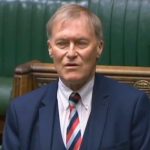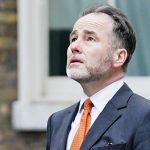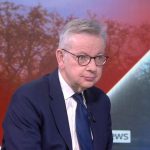Keir Starmer has come under scrutiny over how he will fund the vast reforms he is planning to secure the future of the NHS.
The Labour leader gave a news briefing in Essex where he laid out his vision for health service, as well as specific policy proposals and pledges for what his government would do if it wins power at the next election.
The NHS formed one of the five missions Sir Keir laid out in February that will be the core of his election manifesto heading into 2024.
They are:
In his speech, Sir Keir set out three goals for the NHS, including that it would be “fit for purpose” with ambulances arriving within seven minutes for cardiac arrest, that four-hour waiting targets will be met in A&E and that GPs will have the highest satisfaction rate on record under a Labour government.
The second focused on inequalities, with Sir Keir promising to “improve healthy life expectancy for all” and to halt the inequality gap between different regions of England.
Braverman ignores questions this morning – but she won’t be able to later – politics latest
Labour will build on green belt to boost housing, Starmer says
Sir Keir Starmer says ‘it feels wrong’ EU citizens can’t vote in general elections
Sir Keir Starmer is seeking to channel Tony Blair – but the Tories could exploit a vulnerability in his plan
And the third was centred on the “three killers”, with pledges to get heart attacks, cardiovascular disease and strokes down by a quarter in a decade and that 75% of all cancer will be diagnosed at stage one or two.
Finally, he promised to reverse current rates of suicide – the biggest cause of death in men in England under the age of 50.
“Suicide is the biggest killer of young lives in this country, the biggest killer,” he said. “That statistic should haunt us. And the rate is going up. Our mission must be and will be to get it down”.
Shortly after he outlined his ambitions, Sir Keir faced questions from journalists on how his NHS targets and reforms for would be funded.
Please use Chrome browser for a more accessible video player
Asked whether whether more money would go into the NHS under his leadership, Sir Keir replied that money was “part of the solution” but added: “It’s not “all about money.”
He was also asked about pay for NHS staff, to which he said there will be the “biggest increase in training” in the history of the health service, which the party would pay for by scrapping the non-dom tax status.
Sky’s political correspondent Liz Bates challenged the Labour leader on funding, suggesting that he was trying to “kick the issue into the long grass”.
Asked whether voters could trust his plans if he “wasn’t prepared to say how much they will cost”, Sir Keir replied: “Let’s just call a spade a spade – where we’ve made a proposal about the change we’re going to make, we’ve said how it’s going be funded. So this challenge you put to me that we’ve not said where the money is coming from, it’s just wrong.
But asked to give an overall estimate for how much the plans would cost, Sir Keir did not provide a specific figure, saying only that the party had set out the costing for “specific proposals in terms” and that technology, research and development would be “the game changers that reduce costs.
Read more:
Keir Starmer’s struggled for visionary policy – a distinct approach to the NHS could change that
Sir Keir Starmer is seeking to channel Tony Blair – but the Tories could exploit a vulnerability in his plan
How have the plans been received?
Chris Thomas, head of the Institute for Public Policy Research (IPPR) commission on health and prosperity, welcomed the plans but said investment would be crucial.
“The NHS was created at a time when conditions like tuberculosis remained among the biggest killers. But today’s challenges are different. A shift to more preventative care – and more care in the community – is long overdue.
“Labour is right in its ambition to create a 21st century plan for a 21st century NHS. But there also needs to be a plan for investment alongside these bold reforms to help make such an aspirational target believable. Investing in the things that drive healthier lives, like good housing, a healthy diet and lower smoking rates will be critical for delivering healthier people and a healthier economy.”






















